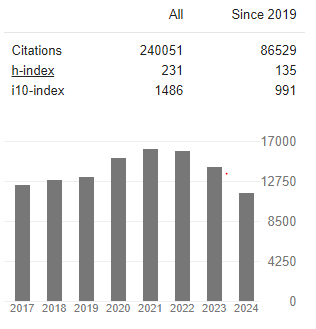RP215-based Anti-Cancer Drugs
Abstract
Gregory Lee
Parallel to the conventional immunology, immunoglobulins can also be produced by many cancer cells of epithelial origins for unidentified functional roles. RP215 was the first monoclonal antibody generated in 1987 and shown to react with a carbohydrate-associated epitope located mainly in the variable regions of heavy chains of immunoglobulins expressed by cancer cells (designated as CA215), but not in those of B cell origin. Through years of biological and immunological studies, it has become apparent that dual differential roles are played by cancerous immunoglobulins. Therefore, cancerous immunoglobulins are essential for the growth and protection of cancer cells under our body environment. RP215 was found to be a unique probe for CA215 in the immunoassays to monitor serum levels of shed cancerous immunoglobulins among cancer patients for immunodiagnostic applications. Upon binding with surface expressed immunoglobulins, RP215 was shown to induce apoptosis and complementdependent cytotoxicity to many cancer cells. Humanized forms of RP215 can be used to target cancer cells of different tissue origins and are being developed into antibody-based anti-cancer drugs for cancer immunotherapy. A new generation of chimeric antigen (CAR)-T cell technology is being utilized to introduce humanized RP215 gene transfected to T cells for cancer immunotherapy of selected sets of human cancers.



